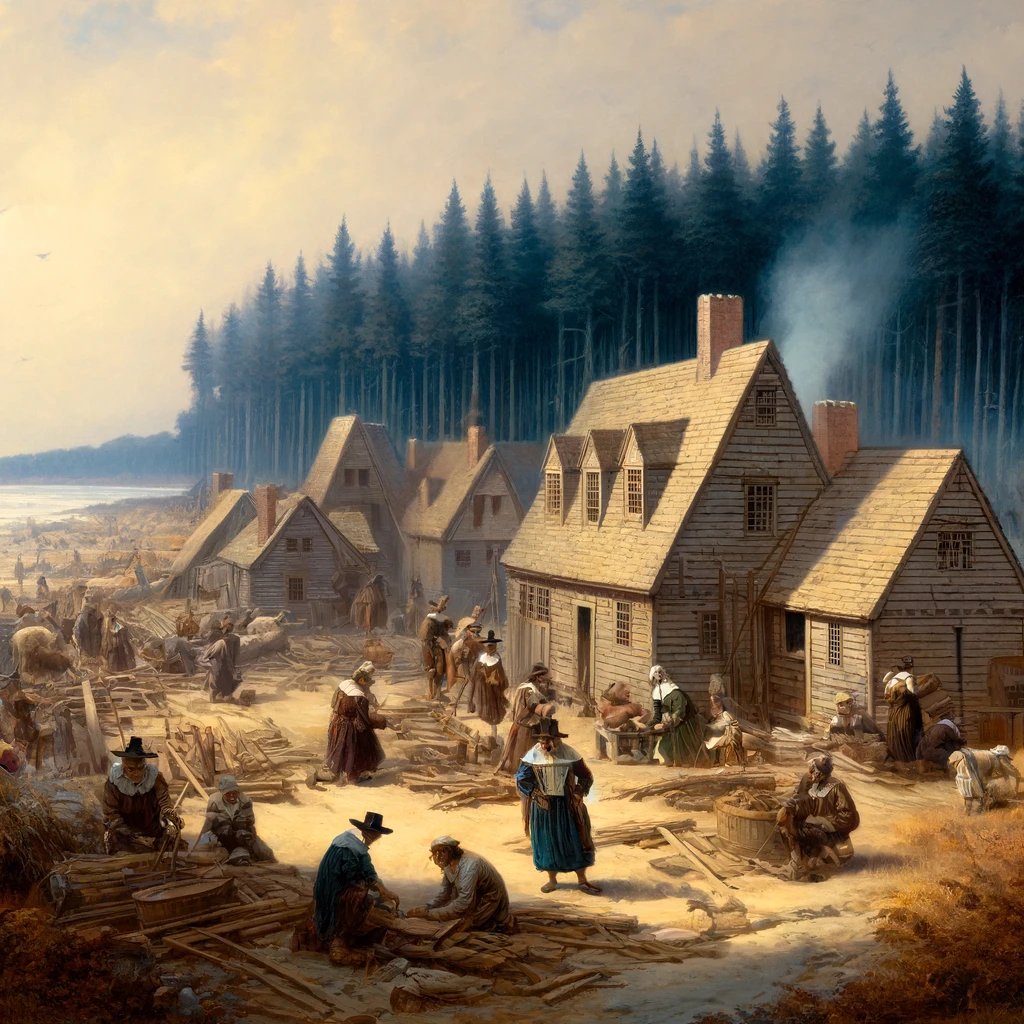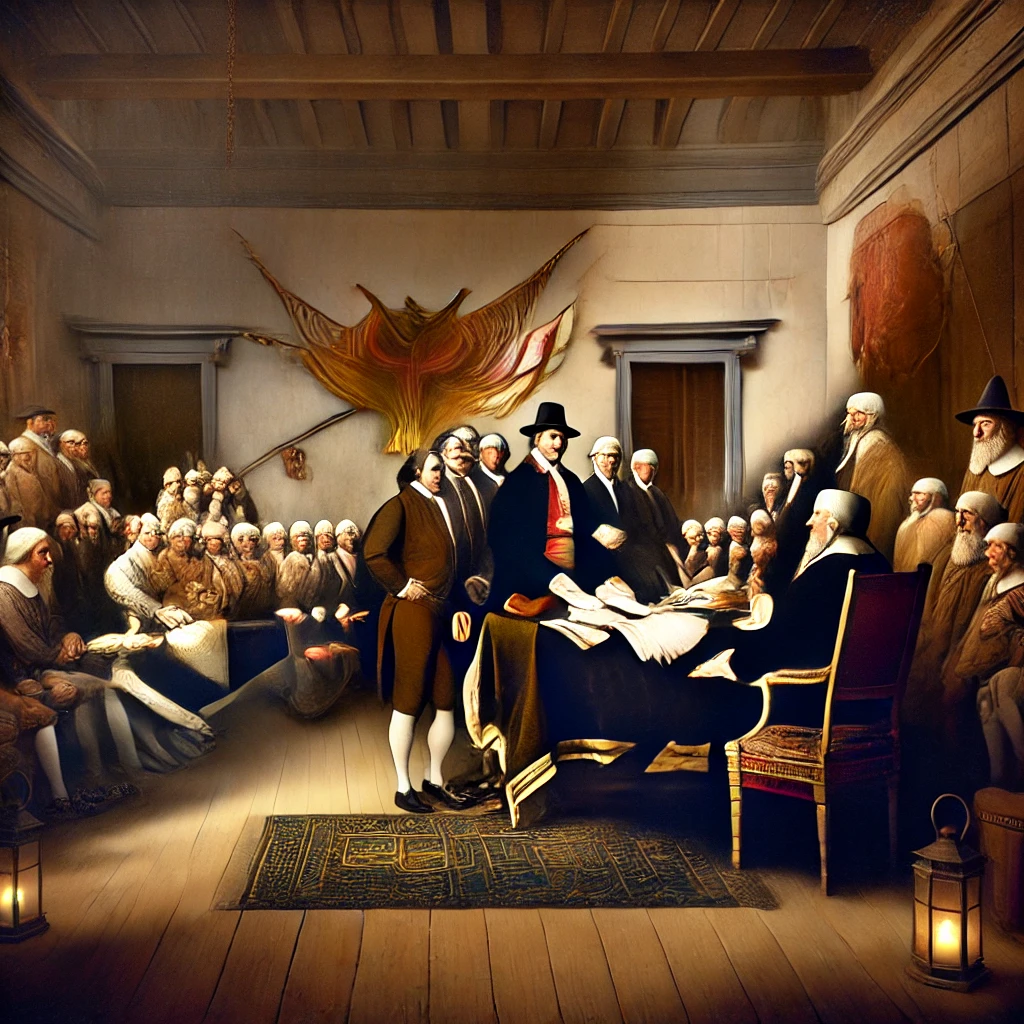On September 16, 1620, the English colonists aboard the Mayflower set sail for America, embarking on a journey that would lead to the founding of Plymouth, Massachusetts. This pivotal voyage marked the beginning of one of the most significant chapters in American history. The signing of the Mayflower Compact by 41 men, including notable figures such as William Bradford and Myles Standish, laid the groundwork for a new society and democratic principles that would influence the future of the American colonies.
The Voyage of the Mayflower
The Mayflower departed from England in September 1620, carrying a group of English Separatists, also known as Pilgrims, along with other passengers seeking a new life in the New World. These colonists, driven by a desire for religious freedom and economic opportunities, faced the formidable challenge of crossing the Atlantic Ocean in search of a place where they could establish their own community.
The journey was fraught with difficulties, including rough seas and cramped conditions aboard the ship. Despite these challenges, the colonists remained resolute in their mission. The voyage, which initially aimed for the Virginia Colony, was rerouted due to navigational errors and adverse weather, leading the ship to land in what is now Massachusetts.

The Signing of the Mayflower Compact
On November 11, 1620, while still aboard the Mayflower and anchored near Cape Cod, the passengers drafted and signed the Mayflower Compact. This document was a crucial step in establishing a framework for governance in the new colony. It was signed by 41 male passengers, including key figures such as William Bradford and Myles Standish.
The Mayflower Compact was an unprecedented agreement, as it represented one of the first forms of self-government in the English colonies. The compact established a “civil body politic” for the Plymouth Colony, emphasizing the importance of majority rule and collective decision-making. This agreement laid the foundation for democratic governance in the New World and reflected the colonists’ commitment to creating a fair and orderly society.
The Founding of Plymouth
Upon disembarking from the Mayflower in December 1620, the colonists began establishing Plymouth, which would become one of the earliest successful English settlements in North America. The site chosen for the settlement was situated on the shore of Plymouth Harbor, offering a strategic location for defense and access to resources.
The early years of the Plymouth Colony were marked by hardship, including harsh weather, food shortages, and disease. Despite these challenges, the colonists, guided by their shared values and the principles outlined in the Mayflower Compact, persevered in building their new community. The arrival of additional settlers and the establishment of agricultural practices helped the colony to gradually stabilize and grow.

Significance of the Mayflower Compact
The Mayflower Compact’s significance extends far beyond its immediate impact on the Plymouth Colony. It is often regarded as a foundational document in the development of American democratic ideals. By establishing a system of self-government and emphasizing the importance of collective decision-making, the compact laid the groundwork for future democratic institutions in the United States.
The compact also highlighted the Pilgrims’ commitment to creating a just and orderly society based on mutual consent. This principle of governance by the people would become a central tenet of American democracy, influencing the development of subsequent colonial charters and the U.S. Constitution.
The Pilgrims’ Legacy
The legacy of the Pilgrims and the Plymouth Colony extends into American cultural and historical consciousness. The story of their journey, settlement, and struggles is commemorated annually on Thanksgiving Day, a holiday that celebrates the colonists’ successful harvest and their cooperation with the indigenous Wampanoag people.
The Pilgrims’ commitment to religious freedom, self-governance, and community building continues to be celebrated as a foundational aspect of American identity. Their experiences reflect broader themes of perseverance, collaboration, and the quest for a better life, which resonate with the American narrative.
Impact on Colonial America
The establishment of Plymouth and the principles outlined in the Mayflower Compact had a lasting impact on the development of colonial America. The success of the Plymouth Colony demonstrated the viability of English settlements in North America and encouraged further exploration and colonization efforts.
The compact’s emphasis on self-governance and democratic principles influenced other colonies and contributed to the development of a tradition of participatory government. This legacy would eventually shape the formation of the United States and its democratic institutions.

Historical Context and Influence
The Mayflower’s voyage and the subsequent founding of Plymouth occurred during a period of significant historical change. The early 17th century was marked by religious and political upheaval in England, which drove many to seek new opportunities in the New World.
The Mayflower Compact’s influence can be seen in the broader context of colonial America’s development. It served as a model for other settlers and influenced the evolution of colonial governance, contributing to the emergence of democratic practices in the American colonies.
Enduring Significance
The significance of the Mayflower Compact and the founding of Plymouth endures in American history. The principles of self-government, religious freedom, and community solidarity that guided the Pilgrims continue to be celebrated and remembered as core values in American society.
The legacy of the Pilgrims and the Mayflower Compact serves as a reminder of the foundational ideals that shaped the early American colonies and set the stage for the development of the United States. Their story remains a symbol of perseverance and the pursuit of a better life, reflecting the enduring spirit of American exploration and settlement.
Lasting Impact
The Mayflower’s voyage and the establishment of Plymouth marked a turning point in American history. The Mayflower Compact’s legacy as a pioneering document of self-governance underscores its importance in the development of democratic principles. The Pilgrims’ journey and settlement exemplify the values of resilience and community that continue to influence American society and its foundational ideals.
The historical significance of the Mayflower’s voyage and the Mayflower Compact endures through the continued recognition of the Pilgrims’ contributions to American democracy and identity. Their story remains a testament to the enduring impact of early settlers on the development of the United States.
